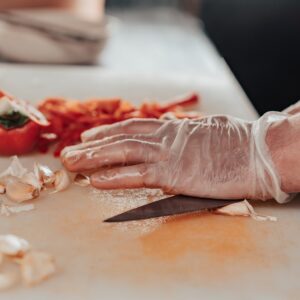Cooking has been a part of human culture for thousands of years, with evidence of early cooking techniques dating back to as early as 1.9 million years ago. However, the exact origins of cooking are still a matter of debate among scientists and historians. In this article, we will explore the various theories about how early humans started cooking.
Raw Food vs. Cooked Food
One of the earliest theories about the origins of cooking suggests that early humans discovered the benefits of cooked food by accident. This theory suggests that early humans were primarily eating raw foods until they discovered the benefits of cooking.
Raw food is harder to digest and contains more toxins and harmful bacteria than cooked food. Cooking breaks down the complex carbohydrates, proteins, and fats found in raw food, making it easier to digest and increasing the bioavailability of important nutrients. Cooked food also contains fewer toxins and harmful bacteria, reducing the risk of foodborne illnesses.
According to this theory, early humans started cooking their food by accident, perhaps by leaving it too close to a fire or by accidentally dropping it into a hot spring. They discovered that cooked food was easier to digest, tasted better, and kept them fuller for longer. This discovery led to the development of cooking techniques, which were passed down through generations, ultimately leading to the complex and diverse cuisine of today.
Controlled Fire
Another theory suggests that early humans started cooking their food intentionally by creating controlled fires. This theory suggests that early humans learned to create fire by rubbing sticks together or by using flint to create sparks. Once they had mastered the art of fire-making, they began using it to cook their food.
Cooking over an open flame would have allowed early humans to cook their food more efficiently and would have reduced the risk of foodborne illnesses. Fire also allowed early humans to eat a wider variety of foods, as it allowed them to cook tough and fibrous plant material, as well as meat.
The discovery of fire also had other important implications for early humans. Fire provided warmth, light, and protection from predators, allowing early humans to expand into new territories and to survive in harsh environments. Fire was also used for social and cultural purposes, such as for cooking communal meals or for religious ceremonies.
Social Learning
Another theory suggests that early humans learned to cook their food through social learning. This theory suggests that early humans learned to cook by observing others, sharing knowledge and techniques, and experimenting with new cooking methods.
Early humans lived in small groups, where knowledge and skills were passed down from generation to generation. Cooking would have been a critical skill, as it would have allowed early humans to provide their group with nourishment and would have played a significant role in social bonding and cultural traditions.
According to this theory, early humans learned to cook by observing others, sharing knowledge and techniques, and experimenting with new cooking methods. Over time, cooking techniques would have become more complex and diverse, leading to the development of different cuisines and culinary traditions.
Evidence of Early Cooking
There is ample evidence to suggest that early humans were cooking their food as far back as 1.9 million years ago. Some of the earliest evidence of cooking comes from the site of Wonderwerk Cave in South Africa, where scientists have discovered evidence of ash and burned bones dating back to 1.9 million years ago.
Other early evidence of cooking includes burned stones found at the site of Gesher Benot Ya’aqov in Israel, which date back to 790,000 years ago, and burned bones found at the site of Zhoukoudian in China, which date back to 500,000 years ago.
These early cooking techniques were likely simple, consisting of roasting food over an open flame or using hot rocks to cook food. However, they would have provided early humans with a significant advantage over other animals in their environment, as cooking would have allowed them to extract more nutrition from their food and to eat a wider variety of foods.
One of the most significant technological advancements in cooking occurred around 10,000 years ago with the development of pottery. The invention of pottery allowed early humans to boil water, cook stews and soups, and bake bread. Pottery also allowed early humans to store food for longer periods, enabling them to survive in harsh environments where food was scarce.
Another significant development in cooking occurred around 5,000 years ago with the discovery of metalworking. The invention of metal cooking vessels allowed early humans to cook food more efficiently, as metal conducts heat more effectively than pottery. Metal cooking vessels also allowed early humans to cook more complex dishes, such as sauces and curries.
The exact origins of cooking are still a matter of debate, and it is likely that early humans started cooking their food through a combination of accidental discovery, intentional use of fire, and social learning. Regardless of how it started, cooking has played a significant role in human culture and evolution, providing us with nourishment, social bonding, cultural traditions, and technological advancements.
Cooking has allowed us to extract more nutrition from our food, to eat a wider variety of foods, and to survive in harsh environments. It has also played a significant role in social and cultural traditions, from communal meals to religious ceremonies. The evolution of cooking techniques, from roasting over an open flame to baking bread in a metal oven, has been a critical aspect of human technological advancement.
Today, cooking remains a vital aspect of our lives, allowing us to connect with our families, our cultures, and our communities. Whether we are cooking a simple meal at home or enjoying a fine dining experience, cooking continues to play a significant role in our daily lives, providing us with nourishment, enjoyment, and a sense of pride and accomplishment.




